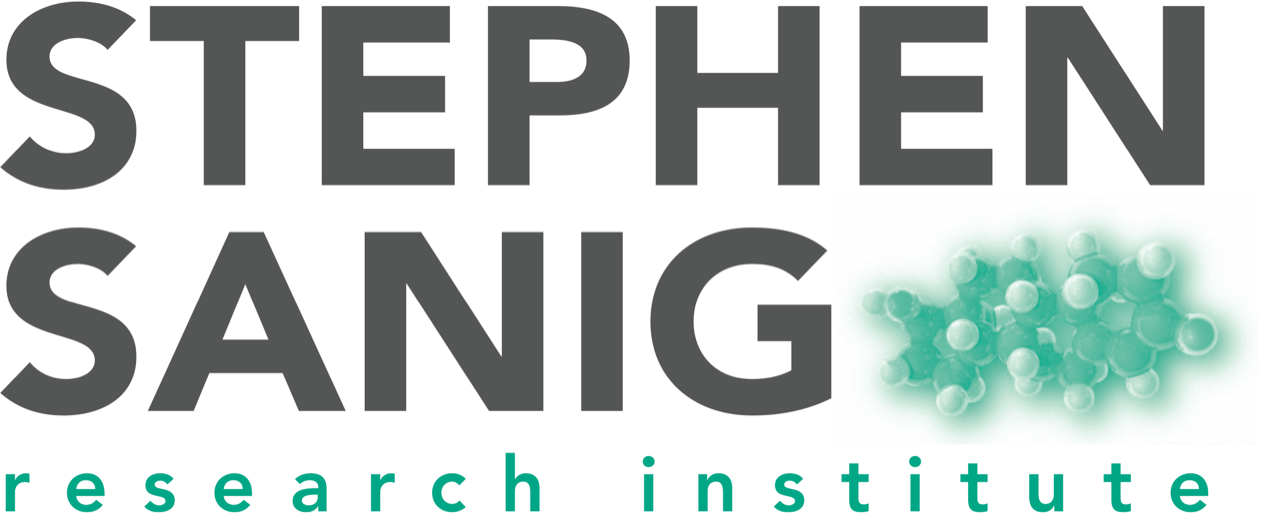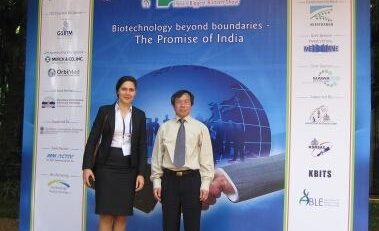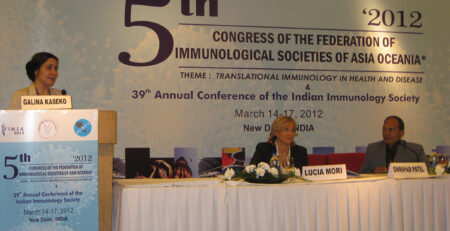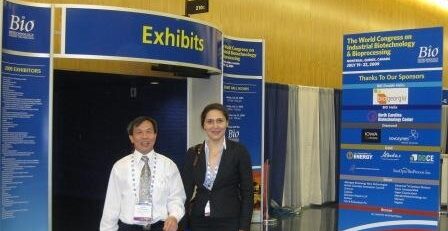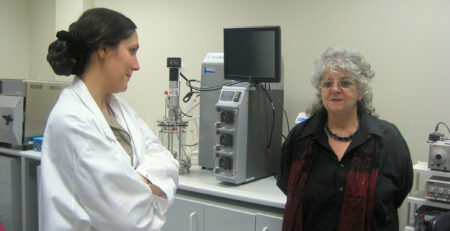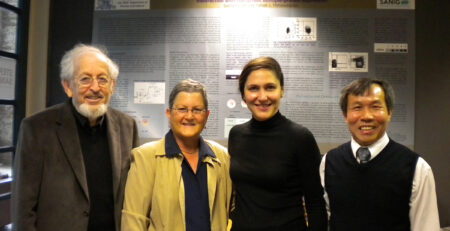SSRI and Faculty of Science at UNSW host Prof. David Naor
On 18 October 2005, the Stephen Sanig Research Institute and the Faculty of Science at the University of New South Wales were very pleased to host an eminent scientist, Professor David Naor, the Milton Winograd Professor for Cancer Studies at Hebrew University’s Hadassah Medical School. In his 1967 PhD thesis, Professor Naor was the first to describe the immunoglobulin-like B cell receptor, laying the groundwork for the emergence of modern immunology. Over almost four decades his work has focused on understanding the immune response in the context of malignancy and autoimmune diseases, with a view towards developing more effective treatments for such conditions. His research has resulted in numerous publications in peer-reviewed journals, international conference presentations, and the receipt of key awards and grants. Professor Naor has held research and visiting faculty positions at the University of California at Berkeley, the University of California School of Medicine in San Francisco, the Harvard Medical School, the Sloan-Kettering Memorial Cancer Institute, and the National Institute of Health in London, and he received an award from Johnson & Johnson given “in recognition of outstanding research toward the advances of science and technology in health care.”
During his visit, Professor Naor gave a public lecture at the Leighton Hall, Scientia, the University of New South Wales titled “How science helps medicine fight against cancer and autoimmune diseases: Examples from a laboratory in Jerusalem.” In particular, he discussed some of his current work on using antibodies to target and eradicate cancer cells and destructive inflammatory cells without causing damage to essential biological systems. Prof. Naor’s research has led to the discovery of new therapeutic drug candidates for treating cancer and rheumatoid arthritis which are expected to achieve superior health outcomes with reduced side effects: eliminating the disease without killing the patient.
Science behind: Professor Naor has been focusing his research on CD44, a cell adhesion and cell homing receptor. By interacting with the hyaluronic acid on endothelial cells or in the extracellular matrix, CD44 supports the cell migration. Cell surface CD44 is also engaged in other functions, such as presentation of growth factors to the relevant cell receptors, presentation of enzymes to the relevant substrates and the delivery of signals – including apoptotic signals – into the cell interior. However, CD44 has also been implicated in the dissemination of a malignant lymphoma and destructive inflammatory activity in autoimmune diseases such as juvenile onset diabetes and rheumatoid arthritis. The targeting of CD44 by anti-CD44 monoclonal antibodies (mAbs) may eradicate not only malignant cells and destructive inflammatory cells, but also CD44-expressing normal cells, committed to physiological functions. Recent findings by Professor Naor and his scientific team have led to the multiple structures of CD44 that exist as a consequence of alternative splicing and post translational modifications. These findings suggest that such CD44 isoforms are differentially expressed on cells, which are engaged in pathological and physiologic activity, leading to the possibility of defining a disease-specific CD44 and producing disease-specific mAbs. Further, the team has demonstrated that by targeting the CD44 variant expressed on synovial fluid cells of patients with rheumatoid arthritis, apoptosis could be induced in such cells whilst not affecting peripheral blood leukocytes of the same patients. The rheumatoid arthritis project will be used as a model to identify additional disease-specific CD44 variants in different cancer and inflammatory diseases.
